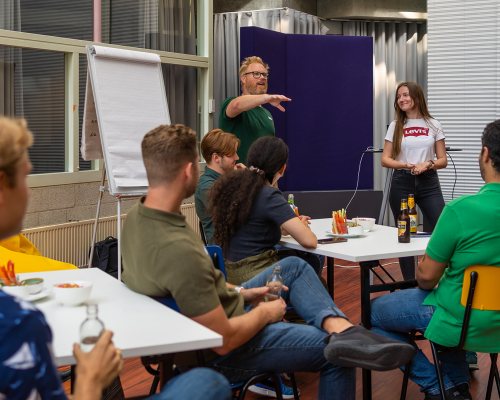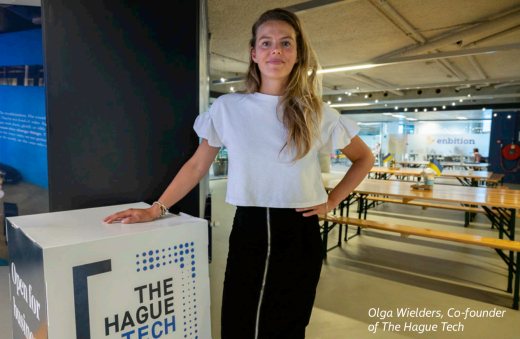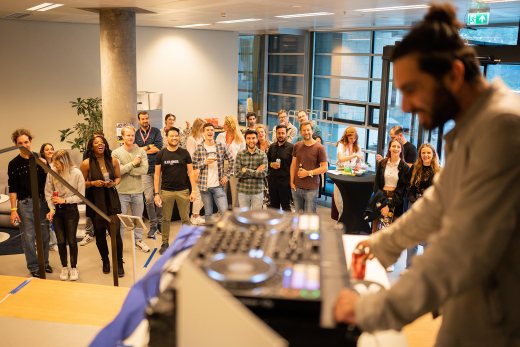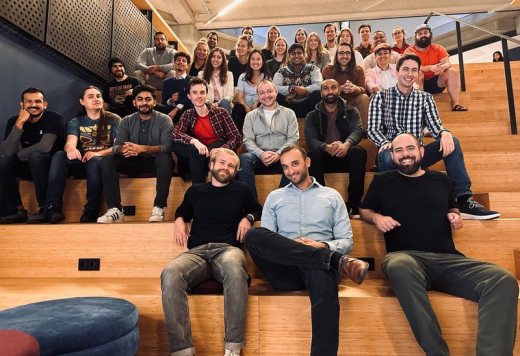After centuries of primarily focusing on its non-profit and diplomatic community, the municipality of The Hague has made a turnaround in the past decade, intensifying investments in its business community. These efforts have been remarkably effective, leading up to a vibrant and growing startup community today. Among the city’s success stories is The Hague Tech, and the accomplishments of this Tech hub can’t be properly explained without looking at its origins.
A flagship for The Hague’s Impact Economy
As the city laid the first cornerstones of its new economic development program ImpactCity, three entrepreneurs decided to ride that wave and build the community they wished to be part of them selves. More than bricks and stones, it’s the social fabric that distinguishes the community at The Hague Tech from most other business hubs. Most of its 165 member-companies have a solid technology base and what binds them is their ambition to use that tech for good, as is encouraged by The Hague Tech’s core team. Moreover, of its over 500 individual members, many are actively engaged in organising community events or programs, or contribute to the community in other ways.
“The purpose of The Hague Tech is to promote and facilitate collaboration and exchange of ideas and knowledge, with the specific intent to accelerate innovations that make the world a better place. We’ve ben able to attract the kind of businesses that fit that purpose well and make the community what it is today.”
The energetic vibe generated by this community is noticeable as soon as you enter the building, and rubs off on newcomers and visitors to the community. It’s the kind of vibe that activates, and has brought forth various events, programmes and other activities which are either initiated or supported by The Hague Tech’s core team. “We continue to support collaborative initiatives taken by the community, and when fit we initiate meetups ourselves. For example if we identify opportunities for companies to collaborate before they have met. This approach has offset new programmes that grew well beyond the local community, such as most recently the GovTech program,” Olga explains.
Hackathon for Good
’Hackathon for good’ is also a textbook example of a successful event that grew from the grassroots of The Hague Tech’s community and has been organised annually together with World Startup since 2018. With over 200 participants from different parts of the world, this data and responsible AI-centred hackathon event has grown into an international hybrid event with 34 non-profit and governmental partners bringing in real-world cases that the international teams work on for 48 hours. “Each year this hackathon yields valuable new solutions to complex problems, increases the global network of tech-minded change makers and demonstrates the power of collaborating for a good cause,” Olga explains.
The strong social connections and proactive attitude of the community was a proverbial life saver during the pandemic. As business slowed down, companies reached out to each other to discuss and explore potential new business opportunities.
“This happened because the companies knew and trusted each other,” explains Olga, “they were all stuck in more or less the same situation and looked for alternative ways to stay in business. In terms of collaboration and innovation, this period was a blessing to the community, and a lot of good came out of it.”
Similarly, the Covid-19 pandemic made research and education institutes more accessible for collaboration. Olga: “The restrictions that accompanied the pandemic seemed to force the institutes to open up to new locations and new ways of working. Their presence at The Hague Tech and their participation in our network has a lasting value to our community.”
Central location
The location of the The Hague Tech hub, at a walking distance from public transport and with direct trains to Amsterdam, Schiphol, Leiden, Rotterdam and Delft makes it extra attractive for larger organisations who are looking for strategic partnerships with startups, to open an affiliate office at The Hague Tech. Similarly, it has attracted service providers such as marketing and media companies, HR- and Bookkeeping services as well as incubators YES!Delft and PLNT Leiden. This mix of organisations is an ideal environment for the startups to grow, as can be witnessed by several highly successful companies, among which is Circularise.
Circularise
Circularise is a participant in the YES!Delft incubator at The Hague Tech and has grown to 35 employees since it was founded in 2016. The company offers supply chain transparency software to enable the circular economy and has several multinational manufacturers in its client base. They recently raised €11 mln. in series A-funding to advance its digital passport solution for tracking materials and products throughout the supply chain and to further expand their international operations.
Their blockchain-powered solution helps companies track the origin, quality and composition of the materials in all parts in their products. Recyclers can use the passport to optimise recycling because of the data available and manufacturers can optimise their product design processes for recycling and can transparently communicate their circular programs in their marketing campaigns. Buyers can benefit from this transparency as well and weigh the circularity efforts in to their purchasing decisions. This way, Circularise brings a circular economy a large step closer. Circularise has benefited from their membership at The Hague Tech and their involvement in the community. As mentioned before, Circularises’ participation in the GovTech program led them to new collaborations in a new market, and their participation in the Blockbar Lab has been invaluable to the development of their solution.
Find more hidden gems at The Hague Tech
There are many more inspirational success stories to be found among the The Hague Tech community. Get in touch to get a tour or introduction!






